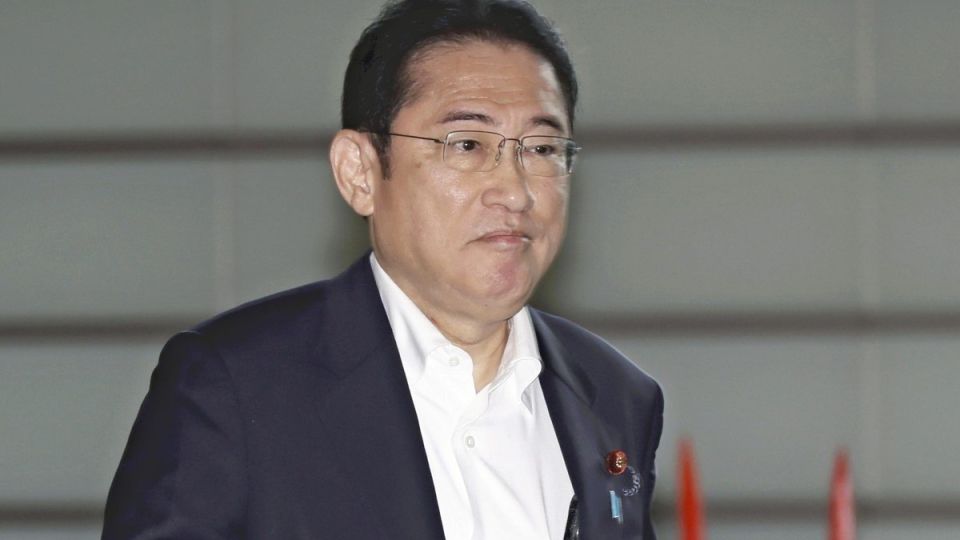June 26, 2024
TOKYO – The ruling Liberal Democratic Party is feeling a growing sense of urgency over its sluggish party support ratings as well as low Cabinet approval ratings.
While dissatisfaction with Prime Minister Fumio Kishida, who is also the LDP president, is building due to fears that the next House of Representatives election could make a change of power possible, the LDP also faces the dilemma that an “intraparty feud” would further erode support.
The opposition parties are on the offensive, but their position is complicated by the fact that they would actually prefer to have Kishida, who is struggling with low Cabinet approval ratings and party support ratings, as their opponent in the lower house election.
An LDP lawmaker who has some Cabinet experience said on Monday: “Support for the party is also declining, as if it is being dragged down by the sluggish Cabinet approval ratings. This is a very serious situation, and we cannot contest the [lower house] election in this condition.”
According to a Yomiuri Shimbun nationwide survey conducted from Friday to Sunday, the Cabinet approval rating was 23%, the lowest since the LDP returned to power in 2012.
Support for the party also fell to 25% from 27% in the previous month, not far above the lowest it has reached since 2012, which is 23%.
Within the party, there is growing concern, especially among middle-ranking and junior lawmakers, that a number of lawmakers losing their seats in the next lower house election is becoming an increasingly realistic possibility.
Shuichi Takatori, former state minister of agriculture, forestry and fisheries, spoke frankly to reporters on Sunday, saying that “it will be very difficult to maintain a majority” if the LDP contests the election under the leadership of Kishida.
Under these circumstances, criticism of the prime minister has gained momentum.
On Saturday, Kuniyoshi Azuma, a lower house member of the Motegi faction, said, “We hope he [Kishida] will avoid talking about reelection [to the party presidency] and refrain from joining the race.”
On a podcast program on Sunday, former Prime Minister Yoshihide Suga harshly said “the prime minister has not taken responsibility [for the scandal involving politics and money].”
On the other hand, some have complained about excessive criticism of the prime minister.
Norihisa Tamura, executive acting chairperson of the LDP Policy Research Council, said on a Fuji TV program on Sunday: “It is not good for party members to criticize each other. If you are going to criticize [the prime minister], it would be better to say it to his face.”
A veteran lawmaker from the former Kishida faction said, “A party that puts the blame on its own president and is fractured internally will not be supported.”
Komeito, the LDP’s coalition partner, is also critical of the LDP’s stance. Komeito leader Natsuo Yamaguchi said, “Full accountability has not been taken.”
However, another senior party member stated, “The party [Komeito] will not stir up trouble in the LDP from the outside,” expressing the party’s intention to distance themselves from criticism of the prime minister.
Meanwhile, the opposition parties are intensifying their criticism of the LDP.
Kenta Izumi, leader of the Constitutional Democratic Party of Japan, expressed his enthusiasm, saying, “We want to accelerate preparations for a new administration.”
Fumitake Fujita, secretary general of the Japan Innovation Party, stressed, “The public will not tolerate the LDP’s evasive attitude.” Yuichiro Tamaki, leader of the Democratic Party for the People, said firmly, “The public are fed up with the LDP’s inability to fix its own misdeeds.”
However, the support levels of both the CDPJ and the JIP have also been stagnant at 6%. If the lower house is dissolved and a general election is held under a new prime minister, there is a possibility that the LDP will come back to life due to the resulting sense of renewal.
A veteran lawmaker from the CDPJ said, “It would be best if we could have Prime Minister Kishida remain in office.”

